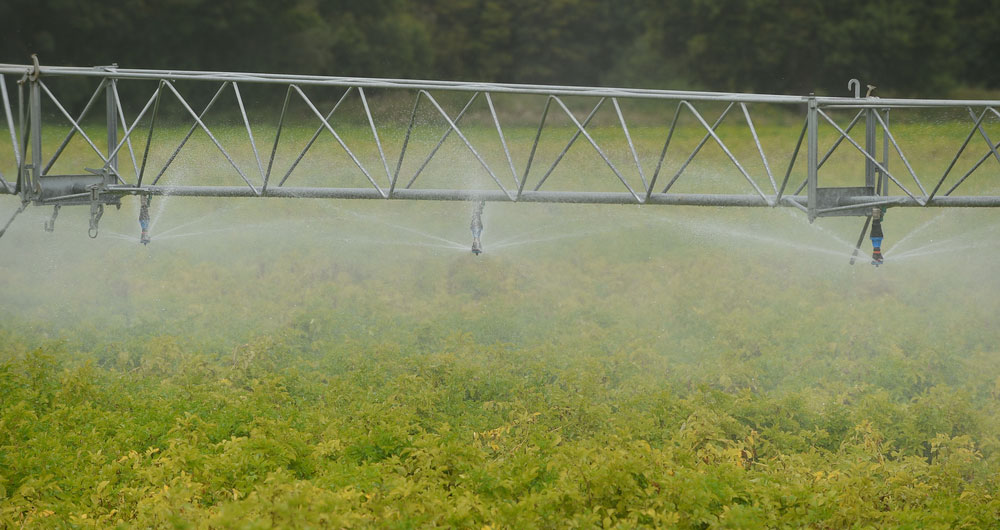Rainfall throughout June and July means that the risk of irrigation restrictions is very low, although some constraints cannot be ruled out at the tail end of the season on some rivers in Suffolk and Essex. Rainfall along the east coast has remained lower than normal.
Groundwater levels throughout East Anglia are hovering around, or just below, normal levels and irrigation restrictions this season are not anticipated.
See also: Irrigation prospects for East Anglia (from 25 June)
In Cambridgeshire, flows in the river Cam remain a cause of concern with local rainfall stubbornly low (just 88% of long-term average). Fenland pumped catchments have hugely benefitted from recent rain with the earlier threat of restrictions in the Middle Level easing, helped by water transfers supported by Anglian Water.
River flows in the Cam and Ely Ouse catchment are mostly normal although flows in the Lark and Little Ouse are below normal.
Flows in Norfolk rivers are generally normal, except for the Bure and Wensum which are below normal.
Flows in Suffolk and Essex rivers are below normal with the Waveney, Ore, Deben, Colne and Chelmer notably low. The river Waveney is being supported and Deben is described as ‘at risk’.
It is too early for the Environment Agency to confirm its position on the risk of late-season restrictions in these Suffolk and Essex rivers, but last year’s river quality issues (namely high temperatures and dissolved oxygen which triggered restrictions) are not evident this year.
The NFU meeting was attended by farmer representatives from the key irrigation catchments, abstractor groups and IDB representatives.
Reporting from the fields, famers said that their early season irrigation challenges had stabilised because of recent rainfall but water availability in the next four to six week peak irrigation period will be crucial for the main field root vegetable and leafy salad harvest.
Farm reservoirs started the season full and their capacity has not yet been exhausted despite hot and dry weather throughout spring.
With 2020 marking our third successive dry year, the NFU and Environment Agency share the view that farmers must start as early as possible to plan carefully for the 2021 cropping season.
Challenging weather leading to ‘too much’ and ‘not enough’ water has exposed the fragility of important habitats in our region and highlighted gaps in agriculture’s resilience to extreme events.
Our attention is already turning to next year and the need for higher than average – perhaps much higher than average – rainfall throughout the winter to replenish our depleted water resources.
The Environment Agency recently revised and updated its abstraction licensing position in response to dry weather which you can read here.
Read more on NFUonline:
